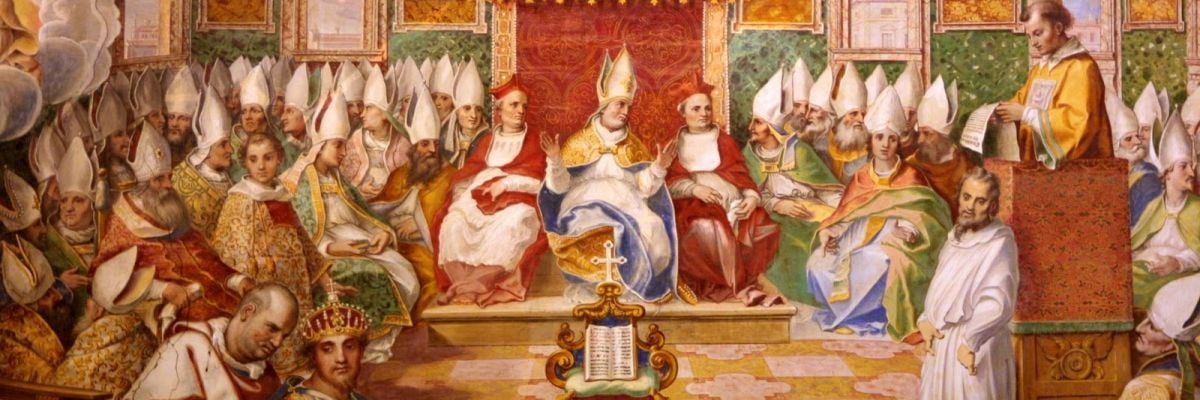
In this episode of Catholic Answers Live, Jimmy Akin joins Cy Kellett to answer a timely question: Could Pope Leo XIV “rewrite” the Second Vatican Council? Jimmy unpacks what popes can and can’t do when it comes to ecumenical councils, clarifies the authority and permanence of Vatican II’s teachings, and explores how future popes might interpret or emphasize certain aspects of the Council.
Transcript:
Caller: I want to try to make this very simple here. So let’s say the new Pope, Pope Leo XIV, is in a meeting with the Society of St. Pius X. They’re trying to negotiate some type of reconciliation. And the Society of St. Pius X says, we still have a problem with Dignitatis Humanae, the decree on Religious Liberty of Vatican II. Could the Pope say, okay, you know what I’m going to do? I’m going to go in and I’m going to modify and change certain passages or certain words in Dignitatis Humanae to make them acceptable to you guys? Can he do that?
Jimmy: Well, that’s not how they’d handle this kind of situation. The Pope would not go back and rewrite the text of a document that had been issued by Vatican II and approved by his predecessor, Paul VI. What could happen is that there are a couple of things. Popes have different abilities to modify previous teaching, and their ability is affected by whether the teaching has been articulated infallibly or whether it’s been articulated non-infallibly. We refer to this process of modification of teaching over time as doctrinal development. That’s the term that’s been used ever since St. John Henry Newman gave it that name.
If a teaching is non-infallible, then it is, to use a classical term, revisable. It can be modified. And so if an ecumenical council needed modification in one of its teachings, the Pope would simply announce the new teaching. He wouldn’t go back and rewrite historical documents. Instead, he would just say, here’s the Church’s understanding of this teaching.
Now, if a teaching has been articulated infallibly, whether by an ecumenical council or not, then the Pope cannot modify it because it’s infallible or irreformable, to use the classical term. What he can do in that case is not modify the teaching itself, but supplement the teaching. Because when teachings are infallibly defined, they’re always very narrowly framed. They don’t specify everything in the context that’s related to the question. They just infallibly define this one single point.
The Pope could go and add additional points around what had been defined to flesh it out a bit. In the case of Vatican II, none of the Vatican II documents articulated any new teachings in an infallible way. They did refer to teachings that had already been infallibly declared, like, for example, the real presence of Christ in the Eucharist, but they didn’t issue any new teachings. Therefore, anything that was new that the Council articulated on religious liberty is non-infallible and therefore, at least hypothetically open to revision.
Caller: Okay, very good. So basically he wouldn’t do it. Is that what we’re saying? I mean, what if he tried to? What if he said, I’m changing these words, I’m just doing it, even though it’s not been done before?
Jimmy: He would essentially create a new document that had the new wording in it, but it wouldn’t change the fact that Vatican II wrote a document that had different wording in it, and people would know that the historical, original Vatican II document said something different. The situation would kind of be like taking a Vatican II document and treating it like the Code of Canon Law. The Code of Canon Law is a set of laws that the Church has, and it can periodically be modified where they go into the Code of Canon Law itself and change the words.
What the scenario you’re proposing would be basically like that, treating this Council document as if it was a legal document that could be modified. But that’s not how the Pope would do it. In practice, the same goal could be achieved of I’m going to do things that will make whatever the question is acceptable to the SSPX. He could do that. He just wouldn’t do it by rewriting the document. He’d just say, here’s what the Church understands now, and here’s the level of authority that this previous statement has.
Cy: Nick, thanks. That brings us to our first break. Our guest is Jimmy Akin. Ask me anything this hour and next on Catholic Answers Live.



